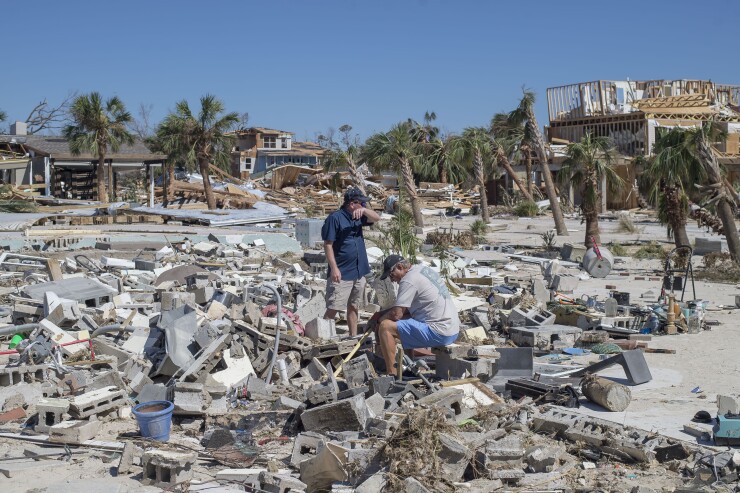Victims of Hurricane Sally have until mid-January to file various federal individual and business returns and make tax payments.
The IRS is offering this relief to any area designated by the Federal Emergency Management Agency as qualifying for individual assistance. Currently this includes Baldwin, Escambia and Mobile Counties in Alabama, but taxpayers in localities qualifying for individual assistance added later to the disaster area, elsewhere in the state and in neighboring states, will automatically receive the relief.
The current list of eligible localities is on the
The relief postpones various filing and payment deadlines that occurred starting on Sept. 14. As a result, affected individuals and businesses will have until Jan. 15 to file returns and pay any taxes that were originally due during this period.
Individuals who had a valid extension to file their 2019 return due to run out on Oct. 15 have until Jan. 15 to file. Because tax payments related to these 2019 returns were due on July 15, those payments are ineligible for this relief.

The January deadline also applies to quarterly estimated income tax payments due on Sept. 15 and to quarterly payroll and excise tax returns normally due on Nov. 2 and to tax-exempt organizations operating on a calendar-year basis that had a valid extension due to run out on Nov. 16.
Businesses with extensions have the additional time including, among others, calendar-year corporations with 2019 extensions running out on Oct. 15.
Penalties on payroll and excise tax deposits due on or after Sept. 14 and before Sept. 29 will be abated if the deposits are made by Sept. 29.
The IRS automatically provides filing and penalty relief to any taxpayer with an IRS address of record located in the disaster area. If an affected taxpayer receives a late filing or late payment penalty notice from the IRS that has an original or extended filing, payment or deposit due date falling within the postponement period, the taxpayer should call the number on the notice. In addition, the IRS will work with any taxpayer who lives outside the disaster area but whose records needed to meet a deadline occurring during the postponement period are located in the affected area.
Taxpayers qualifying for relief who live outside the disaster area need to contact the IRS at (866) 562-5227. This includes workers assisting the relief activities who are affiliated with a recognized government or philanthropic organization.
Individuals and businesses in a federally declared disaster area who suffered uninsured or unreimbursed disaster-related losses can choose to claim them on either the return for the year the loss occurred (in this instance, the 2020 return normally filed next year), or the return for the prior year (2019). Write the FEMA declaration number -- 4563, for Hurricane Sally in Alabama -- on any return claiming a loss.





